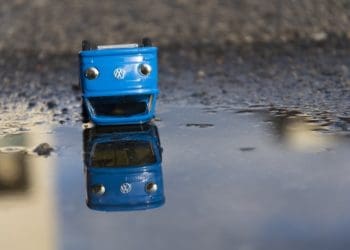This article was republished with permission from Tom Fox’s FCPA Compliance and Ethics Blog.
Many say the Wild West ended on [August 19] in 1895 when John Wesley Hardin was gunned down in El Paso by the town’s sheriff. Hardin was a legendary gunslinger who is purported to have gunned down over 40 men in his career. He was so mean that he allegedly shot and killed a man for snoring too loudly for his liking. What is clear is that Hardin was shot in the back of the head and killed by the El Paso sheriff, who was not convicted of any charges in the slaying. It certainly was one more step in the taming of the Wild West.
The slaying of Hardin and the end of the Wild West seem like a good way to lead into today’s post. It is really no surprise that the other shoe would drop in the Volkswagen (VW) emissions-testing scandal. This week the German auto supplier Robert Bosch GmbH was alleged to be a “knowing and active participant” in a decade-long scheme by Volkswagen AG to evade U.S. emissions laws, according to lawyers for U.S. owners of polluting VW diesel vehicles. The company had been previously named as a co-defendant in the lawsuit, but more specific allegations were laid out in the most recent filing by the plaintiffs.
In an article from the New York Times (NYT), entitled “Volkswagen Supplier Played Key Role in Cheating, Court Papers Say,” Jack Ewing reported that the new allegations have Bosch “playing a more central role in the scandal than was previously alleged.” He went on to note, “The new allegations, filed in federal court on Tuesday and reported by Reuters late Wednesday, contend that Volkswagen could not have modified engine software to deceive emissions regulators without Bosch’s help.”
According to the court papers, “Bosch did not allow automakers to modify the engine software without its approval.” Therefore, “It is inconceivable, then, that Bosch did not know that the software it was responsible for defining, developing, testing, maintaining and delivering contained an illegal defeat device,” the papers said, adding, “Bosch was in on the secret.”
David Shepardson and Joel Schectman, writing in a Reuters piece entitled “Bosch worked ‘hand-in-glove’ with VW in emissions fraud: lawyers,” said that while most of the court filing was under seal because of confidentiality concerns of VW, the new filing includes “records and communications between Bosch, VW and U.S. regulators. One 2011 email to the California Air Resources Board, among other communications, demonstrates ‘Bosch’s deep understanding of what regulators allowed and would not allow, and what Bosch did to help VW obtain approval,’ the filing said.” The article went on to state that “Bosch played a crucial role in the fraudulent enterprise and profited handsomely from it.”
Anyone who has ever been a software lawyer or been around software development understood immediately the inanity of VW’s position that a group of rogue engineers could have created, implemented, updated and maintained a software-based defeat device for nearly 10 years. Furthermore, VW did not have the in-house technical capability to pull all this off on its own. The Reuters article stated, “Bosch makes an engine control unit, often referred to as the ‘brain’ of the engine, used by several top automakers including VW. That system controls a vehicle’s acceleration and power and is extensively customized to give each car model its own unique feel.” The NYT piece noted, “Bosch is one of the world’s most prominent suppliers of automobile components, with a focus on electronics.”
What does all this portend for the anti-corruption compliance practitioner? This new front on the VW scandal demonstrates that corruption never happens in a vacuum. For all the talk of a rogue employee or even group of rogue employees, there are always more people who are in on the scam. Even in the recent enforcement actions this summer, in which companies received declinations or non-prosecution agreements (NPAs), there was ample evidence of multiple layers of knowledge within and outside each organization.
If you are running a company where transactions are too complex for your management to understand and those out in the field can engage in illegal activity, that is not the fault of those in the field. They are simply taking advantage of the corporate home office engaging in conscious avoidance or simply being negligent in how they run the business. Conversely, if a business unit is engaging in bribery and corruption under the noses of the home office, it may well be because the corporate office is not even bothering to look.
There is a reason one of the 10 hallmarks of an effective compliance program is ongoing monitoring, which as we now know from the Key Energy FCPA information action, includes transaction monitoring. It also includes auditing – of both your foreign business units and those third parties who are so intertwined with your business that you cannot operate without them, much like VW and its software supplier, Bosch.
This publication contains general information only and is based on the experiences and research of the author. The author is not, by means of this publication, rendering business advice, legal advice or other professional advice or services. This publication is not a substitute for such legal advice or services, nor should it be used as a basis for any decision or action that may affect your business. Before making any decision or taking any action that may affect your business, you should consult a qualified legal advisor. The author, his affiliates and related entities shall not be responsible for any loss sustained by any person or entity that relies on this publication. The author gives his permission to link, post, distribute or reference this article for any lawful purpose, provided attribution is made to the author. The author can be reached at tfox@tfoxlaw.com.



 Thomas Fox has practiced law in Houston for 25 years. He is now assisting companies with FCPA compliance, risk management and international transactions.
He was most recently the General Counsel at Drilling Controls, Inc., a worldwide oilfield manufacturing and service company. He was previously Division Counsel with Halliburton Energy Services, Inc. where he supported Halliburton’s software division and its downhole division, which included the logging, directional drilling and drill bit business units.
Tom attended undergraduate school at the University of Texas, graduate school at Michigan State University and law school at the University of Michigan.
Tom writes and speaks nationally and internationally on a wide variety of topics, ranging from FCPA compliance, indemnities and other forms of risk management for a worldwide energy practice, tax issues faced by multi-national US companies, insurance coverage issues and protection of trade secrets.
Thomas Fox can be contacted via email at tfox@tfoxlaw.com or through his website
Thomas Fox has practiced law in Houston for 25 years. He is now assisting companies with FCPA compliance, risk management and international transactions.
He was most recently the General Counsel at Drilling Controls, Inc., a worldwide oilfield manufacturing and service company. He was previously Division Counsel with Halliburton Energy Services, Inc. where he supported Halliburton’s software division and its downhole division, which included the logging, directional drilling and drill bit business units.
Tom attended undergraduate school at the University of Texas, graduate school at Michigan State University and law school at the University of Michigan.
Tom writes and speaks nationally and internationally on a wide variety of topics, ranging from FCPA compliance, indemnities and other forms of risk management for a worldwide energy practice, tax issues faced by multi-national US companies, insurance coverage issues and protection of trade secrets.
Thomas Fox can be contacted via email at tfox@tfoxlaw.com or through his website 







